![]()
Wed, May 23, 2012 | RubinReports | By Barry Rubin
Consider one fact that demolishes the apparatus of nonsense about moderate Islamists and the credibility of those claiming there is nothing to worry about. These are the same people who have been declaring for more than a year that the Muslim Brotherhood is moderate. Yet now the Brotherhood’s presidential campaign has shown it to be extraordinarily radical, openly demanding a caliphate and that Egypt become a Sharia state.
Suddenly they change the subject. Nobody acknowledges that they were wrong about the Brotherhood. They focus now on a different candidate who we are told is the true moderate Islamist, as if their previous favorite “moderate Islamist” movement has now thrown off its camouflage.
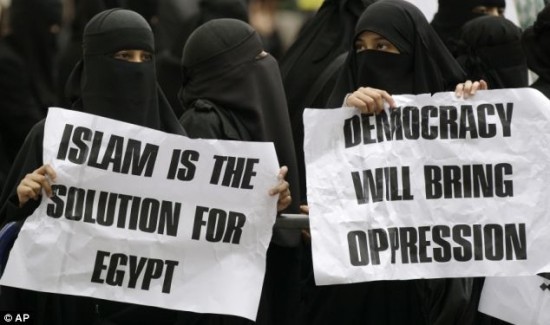
Muslim women in Egypt have a message for President Barack Obama about democracy. (AP/religiousfreedomcoalition.org
“Democracy, as Western democracies have long known,” wrote Shadi Hamid, in predicting a Brotherhood majority in the parliamentary election some months ago, “is about the right to make the wrong choice.” True. But foreign policy, as everyone has long known, is about dealing with the consequences of wrong outcomes and trying to prevent them if possible.
We are told that Abdul Moniem Abul Fotouh is the “moderate Islamist” candidate for president of Egypt whom the West should support. He promises that Egypt will be an Islamic but civil state with equality for all of its citizens. The problem is that Abul Fotouh keeps making statements that belie that image, statements never mentioned by those who ridicule fears about Egypt’s new government.
One ignorant neoconservative wrote in a Canadian newspaper that the regime couldn’t be dangerous because in the presidential debate the question of Israel was only raised near the end. Naturally, the debate structure wasn’t determined by Fotouh and what he said about Israel was quite threatening, namely that it is a racist enemy based on occupation and threatening Muslims with 200 nuclear weapons. At any rate, the main problem is not what the new regime will do to Israel but what it will do to Egypt, eventually followed by what it will do to Israel.
This follows, of course, the national security editor of the National Journal explaining that there’s no danger of a radical Islamist Egypt because he could find one (neo)conservative who agreed with him on that issue. What’s truly funny here is that I’m not exaggerating in describing their best arguments.
Here is a new statement by Abul Fotouh. In an interview on an Egyptian television station, Abul Fotouh said he was against “terrorism” but then explained that Usama bin Ladin was not a terrorist, that the United States only called him one in order to “hit Muslim interests,” and that the killing of bin Ladin was an “act of state terrorism.” In other words, he’s saying September 11 wasn’t an act of terrorism but that Obama’s policy is anti-Muslim and terrorist.
I’d agree that he’s better than the official Muslim Brotherhood candidate but there are still lots of other problems with this “moderate Islamist”:
— Does he mean to keep liberal promises that contradict his previous (and current) statements on many issues?
— Can he deliver on these promises even if he wanted to do so? The Islamist non-moderate parliament and the Constitution it will write is unlikely to be along the lines he claims to advocate.
— While the other leading candidate, Amr Moussa, would resist Islamization of Egyptian society and policy, Abul Fotouh would support it, believing he can stop at a certain point, having both Sharia rule and a tolerant liberal approach. Yet what he would actually be doing is to preside — whatever his intentions — over the Islamization process that cannot be easily stopped or reversed.
— If he does resist the radical parliament it will just limit his power in the Constitution. Remember that the role of the president has not yet been defined and Abul Fotouh will play no role in legally defining it.
— How many supporters does Abul Fotouh have in parliament? Answer: Zero. Yes, the Salafists (25 percent of parliament) support his candidacy but they are more extreme than the Brotherhood. Will he alienate this base so that every Muslim Brotherhood and Salafist in parliament votes against him on every issue?
— Can a civil state be run under Islamic law? He says that he will give equality to women and Christians, to liberals and socialists. Is he going to appoint such people to high offices? Remember that non-Islamist regimes found a way to balance on this issue by appeasing the Islamists and traditionalist clerics up to a point but then using their dictatorial powers to do other things (grant a bit more rights to women; ally with the United States and make peace with Israel; implement civil law imported from Europe, etc). A democratic state dependent on a pro-Islamist electorate cannot do that.
— What would he do when Salafists — the people who voted for him — attack churches, women not wearing “proper” clothing, and secularists? Call out the army and repress them? Remember what matters is not just what the state does itself but also what it allows others to do.
Have you seen any of these points — even one — mentioned in the mass media, much less being given a fair hearing? I have been told that the U.S. government has not seriously considered or developed any contingency plan on what to do if a radical, Islamist Egypt emerges threatening U.S. interests and making more likely a future war with Israel. Compare this with two articles that show the fears of this Egyptian liberal and another such person at a time when many such people and the Christian minority are in despair.
While real debate about Egypt is largely suppressed, we have a fascinating example of what the mass media will permit on the issue in Turkish journalist Mustafa Akyol’s op-ed in the New York Times. Suppose you were skeptical about the dominant U.S intellectual, Obama Administration, mass media narrative of Islamism and events in the Middle East? The only way to get an op-ed into the newspaper is to accept its framework but inject a bit of doubt.
Thus, the title of the op-ed is “Can Islamists Be Liberals?” Not only do the hegemonic forces deem the answer to that question to be “Yes” but regard anyone who questions it to be fit only to dwell in the outer darkness.
What Akyol does so skillfully (the fact that he’s a Muslim makes it more permissible) is to avoid outright questioning of that thesis — if he said “no” one doubts his article would have been published — but to put the ball in the other side’s court: He challenges the Islamists to prove they are real democrats. Of course, his lead begs the question:
“For years, foreign policy discussions have focused on the question of whether Islam is compatible with democracy. But this is becoming passé. In Tunisia and Egypt, Islamists, who were long perceived as opponents of the democratic system, are now promoting and joyfully participating in it. Even the Salafis now have deputies sitting in the Egyptian Parliament, thanks to the ballots that they, until very recently, denounced as heresy.”
Well, if you’ve been following this question closely, the outcome is not the least bit surprising. After all, Islamists have been running for election in Turkey, Lebanon, and Jordan for many years. Hamas ran and won in the Palestinian territories six years ago. (Funny, there doesn’t seem to have been an election since then.) Even in Egypt, the Muslim Brotherhood has been running in elections for years, though usually as part of another party. So the issue is not whether they are willing to run, if offered the opportunity, but whether they are going to win.
Akyol continues:
“For those concerned about extremism in the Middle East, this is good news. It was the exclusion and suppression of Islamists by secular tyrants that originally bred extremism. (Ayman al-Zawahri, Al Qaeda’s leading ideologue, was a veteran of Hosni Mubarak’s torture chambers.)”
Now that second sentence may be true but in a very different way than it appears to be. The Islamists of the 1930s and 1940s, before there were “secular tyrants” were quite extreme. After all, for example, they sided with the Nazis and sought — albeit incompetently — to raise rebellions against the British and French as well as their own local rulers. Is it really hard to understand the difference between extremist ends and extremist tactics?
The goal is to seize state power and transform country and society. Precisely how one does it depends on the circumstances.
Thus, it is absurd to state as a fact, as Akyol does: “Islamists will become only more moderate when they are not oppressed, and only more pragmatic as they face the responsibility of governing.” That is a thesis about radicals that remains to be proved. It was said of Lenin and of Hitler, and more recently about Arafat and Khomeini.
It usually doesn’t work out that way, at least moderation can only occur after many decades have passed and many dead have fallen. At this point in his article, having appeased the deities of pro-Islamist “political [but not factual] correctness”, is where Akyol makes his ingenious point: “But there is another reason for concern: What if elected Islamist parties impose laws that curb individual freedoms — like banning alcohol or executing converts — all with popular support? What if democracy does not serve liberty?”
The day before his op-ed came out, I published an article in PJ Media entitled, “What Do Egyptians Want? A Democratically Elected Islamist Dictatorship.” And that’s precisely the point that Akyol makes, albeit in language that is acceptable to the mainstream media. To show his genius in playing within the currently permissible rules, Akyol then quotes a saint of the mainstream narrative to make his point:
“This question is seldom asked in the West, where democracy is often seen as synonymous with liberalism. However, as Fareed Zakaria warned in his 2003 book The Future of Freedom, there are illiberal democracies, too, where the majority’s power isn’t checked by constitutional liberalism, and the rights and freedoms of all citizens are not secured.”
If Zakaria said such a thing, it must be true, right? Of course it is no accident that Akyol is a Turk because, of course, though he never says so directly, this is precisely what’s been happening in his own country. The question he then raises is this: Just because Islam says it, must a government do it? I’d suggest that in the case of non-Islamist Muslims they can — as we’ve seen in many cases over many years — ignore those injunctions.
To believe, however, that Islamists can do it is quite a leap. After all, their whole reason for existence is to remake society and to impose Sharia law as they interpret it.
Think of this parallel: Would a social democratic government impose the dictatorship of the proletariat just because they were socialists or were originally rooted in Marxism? No, of course not.
Would a Communist government that adheres to Marxism-Leninism-Joe Stalin thought impose the dictatorship of the proletariat? That’s something quite different.
And Akyol actually proves my point: “When Muslims say Islam commands daily prayers or bans alcohol, are they talking about public obligations that will be enforced by the state or personal ones that will be judged by God?” Obviously, non-Islamist Muslims argue these are largely personal obligations; Islamists insist that they are public obligations.
The Saudis, Akyol points out, are hypocrites because they impose strict religiosity at home but then have a wild time abroad. How can this not remind us of William Shakespeare’s brilliant political observation:
“Let me have men about me that are fat; Sleek-headed men and such as sleep o’ nights: Yon Cassius has a lean and hungry look; He thinks too much: such men are dangerous.”
Or in other words, better a sybaritic hypocrite who takes bribes than a true-believing fanatic. In the latter category, think of the Taliban, the Iranian regime, Hamas, Hizballah, and Usama bin Ladin. Of course, the West generally believes there are no such thing as “fanatics,” they are all cynical, materialistic pragmatists under the skin. Yet at their moment of greatest triumph, believing Allah is behind them and the corrupt West is crumbling, which do you think the Muslim Brotherhood is going to be?



 RSS
RSS

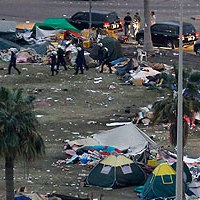

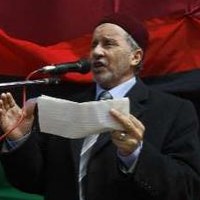
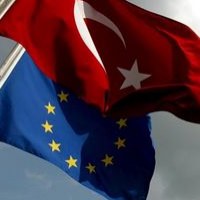
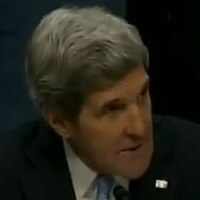




Latest Comments
Hello Mike, Thank you for your positive feedback to the article. I felt there wasn’t too much critical analysis of ...
Thanks for this considered and well constructed article. A follow up article on the manner in which the editorial contro...
THE CLUELESSNESS OF CLAIMING THAT OBAMA'S MIDDLE EAST POLICIES WERE A FAILURE CANNOT BE FURTHER FROM THE TRUTH, WHAT THE...
As long as Obama is the president of the usa do not trust the us government......
Thank you for an good read....